Keywords: Facebook
There are more than 200 results, only the first 200 are displayed here.
-
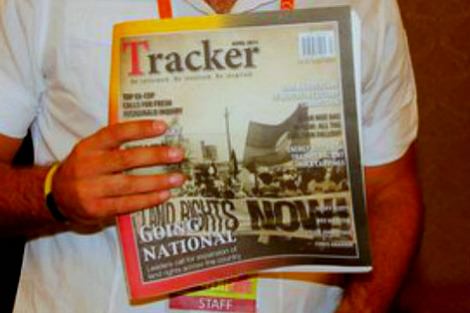
MEDIA
- Celeste Liddle
- 27 September 2016
8 Comments
When I started my blog Rantings of an Aboriginal Feminist four years ago, the major motivation was that I wanted to claim some space in the worldwide web for Aboriginal feminist left-wing discourse. I strongly felt that the mainstream media continued to ignore these types of opinions and, thanks to the internet providing public and freely available space, for the first time ever there was the ability to circumnavigate these traditional channels of communication. I believed no one would read it.
READ MORE 
-
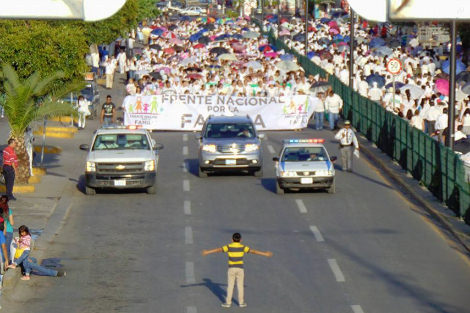
AUSTRALIA
- Fatima Measham
- 15 September 2016
3 Comments
In Mexico, a 12-year old boy walked onto the road to stare down an 11,000-strong anti-LGBTQ protest. In Italy, a small town has been revived by the arrival of refugees and migrants. In the US, NFL quarterback Colin Kaepernick has pulled the issue of police brutality into apolitical spaces, using symbolic gestures to draw out the history of racialised oppression. As Democratic vice-presidential nominee Tim Kaine puts it, 'If you want to be right, be a pessimist, if you want to do right, be an optimist.'
READ MORE 
-
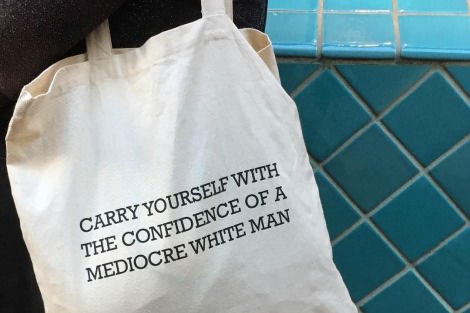
AUSTRALIA
- Fatima Measham
- 05 September 2016
5 Comments
Unless feminism abandons its individualistic, secular, western framing of freedom, it cannot presume to liberate all women. Some of its recent concerns give away limitations: whether this politician identifies as feminist, whether child-raising is self-sabotage, whether women abandon autonomy when they take their husband's name. I wonder sometimes whether it is ever possible to talk about sexual exploitation of women in Asia without getting entangled in sex positivity and legal sex work.
READ MORE 
-
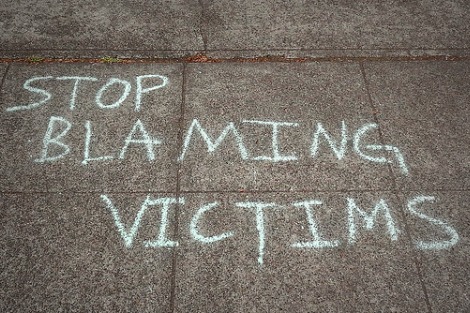
AUSTRALIA
- Madeleine Hamilton
- 24 August 2016
14 Comments
The response from police and others in authority to recent cases involving the abuse or exploitation of adolescent female sexuality is depressingly reminiscent of attitudes held more than 50 years ago. While it was no defence to argue that the girl had consented, if it could be proven she had had consensual intercourse with other men previously, the offender could be acquitted. Consequently, in carnal knowledge trials, girls were frequently accused of having rich histories of sexual activity.
READ MORE 
-
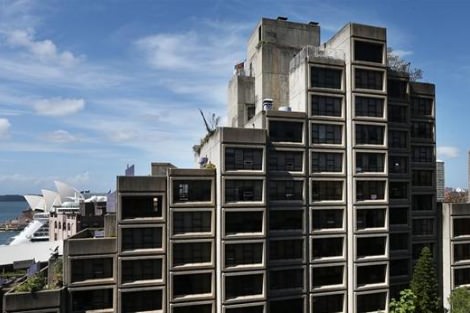
AUSTRALIA
- Catherine Marshall
- 18 August 2016
6 Comments
The Brutalist building - so ugly when I first saw it, now a familiar milestone on the journey into the city - has been condemned to an undignified death; soon it will be demolished, a luxury apartment building erected in its stead. The long-term residents have packed their meagre belongings and gone (though not without a fight). Such is the pattern of progress in New South Wales, under a government that has no compunction in selling public land to the person whose wallet is the fattest.
READ MORE 
-

MEDIA
- Catherine Marshall
- 29 July 2016
2 Comments
Though the internet has stretched and expanded the number of people and places we have access to, it has also constrained the range of ideas and opinions to which we're exposed. Research has found that Facebook users tend to read and share information that reinforces their own beliefs. This phenomenon has been particularly noticeable in the past month, with the emotion whipped up by the Brexit campaign, the election, and a spate of shocking, apparently Isis-related killings.
READ MORE 
-
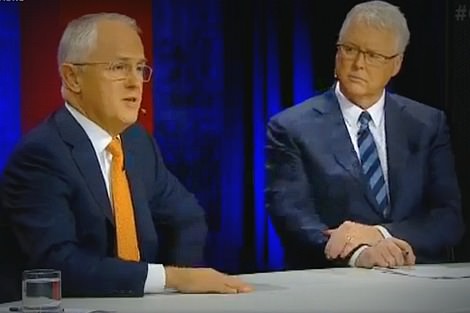
INTERNATIONAL
- Samuel Dariol
- 23 June 2016
15 Comments
It is one thing to sit at a desk and make policies that will impact on individuals across the sea whom you do not know. It is another thing to cross the sea, to look into the eyes of people abandoned there, to meet the children and see the pictures they have drawn, and to see in their eyes terror, despair, depression and contempt. For a prime minister to go to Manus Island would require him to throw off the shroud and stare affrighted at the maggots in the flesh of the body politic.
READ MORE 
-
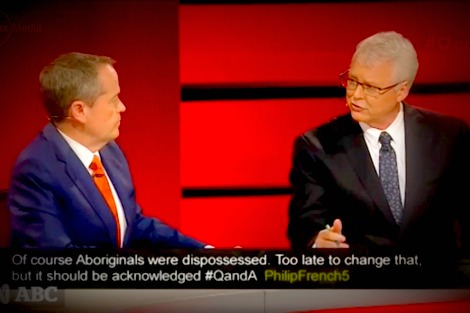
AUSTRALIA
- Celeste Liddle
- 22 June 2016
8 Comments
For the first time ever, I got the sense that political views on the importance of Indigenous issues had shifted. It was not due to an increase in Indigenous voices in the political discussions nor was it because either of the major parties announced a policy which I found remotely inspiring. Rather it was because, under the glare of the camera, the leaders of the two major parties both attempted to show a greater understanding of the Indigenous political agenda than they have before.
READ MORE 
-

INTERNATIONAL
- Fatima Measham
- 15 June 2016
45 Comments
At the epicentre of all this is a place where young, queer men and women had felt safe and free to be themselves. The dead are almost all black, brown, gay and working class. If, as Dr Cornel West has often said, justice is what love looks like in public, then injustice must be what hate looks like, and there is perhaps no greater injustice than murder. Mass murder is hatred realised in full grotesque proportion. This means is that the little things we do to validate hatred are not inconsequential.
READ MORE 
-
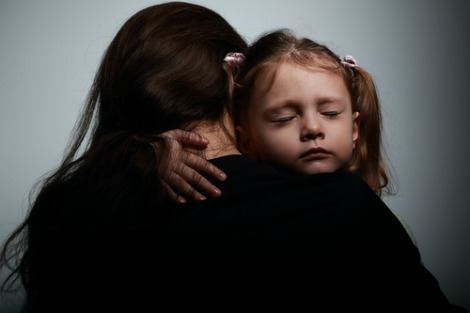
ARTS AND CULTURE
- Suvi Mahonen
- 01 June 2016
5 Comments
'Hi,' the text began. 'Just letting you know there's no pilates tonight. We're all going to The Hub to C an indie music jam. C U next week?' I put my phone down and stared numbly around my kitchen. Dirty dishes jammed the sink. My toddler's banana was smeared all over the fridge door, but I couldn't gather the energy to wipe it clean. I knew I was lucky to have everything I'd worked for - family, a new apartment, financial stability - but I also knew I had never felt so lonely. 'C U next week.'
READ MORE 
-

ARTS AND CULTURE
- Ellena Savage
- 16 May 2016
2 Comments
When my alarm goes off in the morning I reach for my phone: check mail, check ABC, check Twitter. Get up, make filter coffee, pour one. Open my diary and spreadsheet, start working. Pour my second coffee. Eat something, clock calories in. Go for a walk, pick up whatever groceries, clock calories out. Back to work. If whatever I am working on isn't very interesting, this accounting for a day, after day, after day, is fairly sad. But it's also just living a life in 2016.
READ MORE 
-
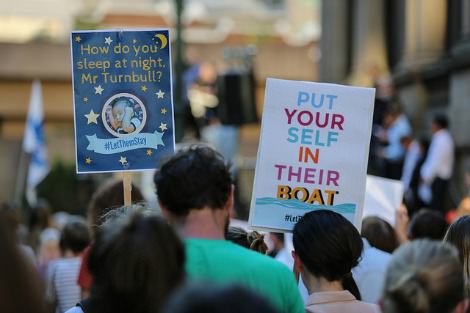
AUSTRALIA
- Somayra Ismailjee
- 12 February 2016
8 Comments
Since the first churches offered sanctuary to the refugees facing deportation to Nauru, a steady stream of voices have joined the call for compassion. As a political language, compassion is itself a reclamation of power. Extending safety, resources, or even a mere welcome to people in need proves that we have something to give. Strength is embodied by a capacity to aid and assist, rather than in cruelty. Empathy, care and compassion appeal to us on a level of emotion that runs deeper than mere rhetoric.
READ MORE 